#government
Trade War Watch: As Commerce Secretary Ponders Auto Tariffs During D.C. Hearing, Automakers Call Out the Troops
As the United States considers imposing new tariffs of up to 25 percent on imported automobiles and parts, the industry has rallied together to stand against the proposal. Manufacturers already made individual cases for themselves and are now dropping very bleak-sounding industry projections on the U.S. Commerce Department in the hopes of changing the administration’s mind.
However, President Donald Trump continues to promote the imposition of tariffs to force a sort of economic justice. For years, China’s protectionist policies regarding automobiles forced American manufacturers to build inside its borders and partner with Chinese firms for years. That’s something Trump claims could be a national security risk. China also recently upped its tax on American-made autos to 40 percent, shortly after promising to lower them. Meanwhile, Europe still holds a consistently higher tariffs on imported cars than the U.S., except for light trucks.
Commerce Secretary Wilbur Ross seems aware that China may have gamed the system in its favor, but appears less convinced that it’s a matter of national security. On Thursday, during a hearing on the probe into the industry, he said it was “too early” to say what the United States would do. Meanwhile, auto groups continue to make their terrifying case. (There’s also quite a bit of rolling PR in downtown D.C. today, as you’ll see below.)
QOTD: Who Should Pay for Your New Car?
As comedian and secret smart guy Norm Macdonald states during his standup routines, “Now, I don’t want to get political, but…”
Of course, Norm then trails off into a topic that’s completely removed from politics, like waiters using a sexualized tone while describing succulent desserts. I’ll keep it toned down here, lest an uproar ensues. From time to time, the actions of governments raise questions pertaining to vehicles that we can discuss without freaking out, and this happens to be one of those times.
Anyway, it turns out I’ll no longer be paying for a minute portion of someone else’s Tesla purchase.
Should Police Have the Ability to Track and Disable Self-driving Vehicles?
Autonomous vehicles have created an endless series of unanswerable questions. As the technology continues to advance, decisions on how best to implement it have not. We’ve yet to discern who is liable in the event of an accident, how insurance rules would change, if they can coexist effectively with traditional automobiles, how they will impact vehicle ownership in the long term, and the infrastructure necessary to ensure they’ll function as intended.
There’s also a myriad of security concerns involving everything from the very real prospect of vehicle hacking to automakers selling the personal information of drivers. Both of those topics are about to come to a head as automakers continue shifting toward connected vehicles.
In March, the U.S. Transportation Department met with auto industry leaders, consumer advocacy groups, labor unions, and others in an attempt to navigate the minefield that is autonomous integration. The department previously hosted similar roundtable discussions in December after releasing the new federal guidance for automated driving systems, called “ A Vision for Safety 2.0.” That guidance freed up automakers and tech firms to test self-driving vehicles with fewer regulatory hurdles to cope with.
However, the December report seemed to focus mainly on how little everyone outside the industry understands the new technology.
Ford Promoting Female Drivers in Saudi Arabia, Gifts Mustang GT to Activist (As Others Remain Jailed)
The women of Saudi Arabia have been under a strict no-driving ban for the last 61 years but, thanks to a decree by King Salman, they’re back behind the wheel. Getting to that point was not easy, however. Leading up to the ban’s repeal, female activists spent years driving against the law in protest and speaking out for their right to do so. Among them was prominent women’s rights activist and retired professor Sahar Hasan Nasif, who was arrested in 2013 after posting a video of herself driving.
Ford, which has taken an interest in the cause, promised her a new Mustang after it was announced Salman would give women the right to drive and apply for a license without a male guardian. The new laws came into effect on June 24th, and Ford shipped the vehicle to a dealership in Jeddah.
Nasif tweeted previously that the Mustang was her favorite vehicle and that she was excited to purchase a yellow example when the time came, prompting Ford to give her one on the house.
Endless Pressure and Public Scandal Leads to Pruitt's Resignation as EPA Head
Environmental Protection Agency Administrator Scott Pruitt, who spearheaded the Trump administration’s initiative to roll back Obama-era fuel economy standards for light vehicles, has resigned. Even after assuming the position, Pruitt remained a tough sell as head of the EPA. His stance on climate change was uncharacteristic of any modern-day environmentalist and he seemed utterly bent on corporate deregulation to bolster profits and stimulate the economy.
Then came a flurry of scandals stemming from frivolous spending habits, improper use of authority, and possible business ties that would inhibit his ability to act in an unbiased manner. Numerous federal investigations were launched into these matters.
While a number of the impropriety claims came from political opponents actively hunting for gaps in his armor, let’s face it, Pruitt hasn’t been making things particularly difficult for them.
An Exhaustive List of Everything Automakers Want You to Know About Trump's Import Investigation (Hint: Higher Prices, Fewer Jobs)
It’s no secret that the automotive industry has come out universally against the Trump administration’s proposal to increase import tariffs. Numerous manufacturers weighed in independently on the issue as trade groups rise in opposition to the U.S. Commerce Department’s national security investigation.
The industry’s claim that imported vehicles don’t pose a risk to the wellbeing of the United States seems to have fallen on deaf ears. Threats that the prospective import duties on parts could result in fewer, more-expensive automobiles being produced domestically have been heard — and rebuked — by President Trump.
“What’s really going to happen is there’s going to be no tax,” he told Fox News in a weekend broadcast. “You know why? They’re going to build their cars in America. They’re going to make them here.”
However, automakers, parts suppliers, and even local governments have submitted comments to the Commerce Department ahead of the hearings scheduled for July 19th — and they’re all incredibly negative.
Whatever Trump Decides, Fiat Chrysler's Prepared for What Comes Next
Without a functional plan, each episode of the A-Team would have ended with four funerals. For Fiat Chrysler, however, the solution to its problem doesn’t involve welding armor plating to a series of scrapyard vehicles while the guy from Breakfast at Tiffany’s lays down covering fire with a Ruger Mini-14.
FCA’s main concern involves the current occupant of the White House, and what his proclamations could mean for the automaker’s bottom line. A 25-percent tariff on imported vehicles could erase nearly a billion dollars in profit each year.
Don’t worry — FCA’s working on a plan.
BMW Rep: Government May Never Allow for Autonomous Cars, Computerized Life and Death Decisions
BMW’s past promises include a pledge to help keep drivers driving in the brave new world of autonomous vehicles. However, it hasn’t entirely sworn off self-driving technology. The company finds itself in a tricky spot, as it’s seen as both a luxury automaker and a performance brand. But it can’t claim to be “The Ultimate Driving Machine” if it doesn’t allow customers to drive.
Automakers and tech firms pushed relentlessly for autonomous driving, making claims that a self-driving nirvana was just around the corner. But current technology proved less than perfect in practice and modern autonomous vehicles require constant human involvement to operate safely, just like any normal car. Despite making strides, the industry seems torn on how to appease everyone.
The government is even more in the dark. While lawmakers initially agreed with industry rhetoric (that autonomy will save lives and usher in a new era of mobility), recent events sparked skepticism. There aren’t many new regulations appearing in the United States, but there also isn’t any clear legislation to help decide who’s held liable when the cars malfunction. A lot of what if questions remain unanswered.
BMW thinks this will be the main reason why autonomous cars fail.
Blue Oval Vs Big Green: Environmental Ad Campaign Lays Into Ford … Again
The builder of the world’s best-selling vehicle, which just happens to be a large truck, finds itself in the crosshairs of yet another environmental ad campaign. Like past campaigns against the automaker, the coalition of four leading environmental groups claim Ford’s commitment to the environment pales in comparison to its thirst for profits.
Oh, and Ford Motor Company might as well change the name on its logo to “Trump.”
That’s what readers of The Detroit News and Detroit Free Press read on Saturday morning, after the Sierra Club (which is not a British Ford fan group, to be clear), Greenpeace, Safe Climate Campaign, and Public Citizen ran giant ads in both newspapers slamming the automaker for backing the Trump administration’s planned rollback of fuel economy standards.
Whoa, whoa, whoa, take it easy, Ford responded.
Gabbing on Gas: White House and California Still On Speaking Terms
Despite the growing animosity, both California and the Trump administration are still willing to discuss the country’s changing emission regulations. The state is currently heading a lawsuit against the Environmental Protection Agency, claiming it “acted arbitrarily and capriciously” in overturning the previous administration’s decision to maintain Corporate Average Fuel Economy standards.
While the proposals issued by the current administration will eventually see those targets rolled back, a final decision has not been made. The White House claims it wants to maintain an open dialogue with the Golden State, hoping to reach an agreeable solution, but the California Air Resources Board has argued it doesn’t seem to be acting on those assertions. Meanwhile, EPA head Scott Pruitt maintains that the state will not dictate federal fueling rules as automakers beg the government to do everything in its power to ensure a singular national mandate.
It’s an ugly situation, which makes news of a new round of meetings all the more surprising.
Volkswagen Group Fined an Additional $1.18 Billion for Emissions Cheating, More Suspects Emerge at Audi
In 2017, the U.S. hit Volkswagen with a $4.3 billion fine as part of the company’s plea agreement for violating of the Clean Air Act. It was a rough ride for the automaker, caught using defeat devices on its diesel engines, but it brought the scandal more or less to a close in America.
An ocean away, it seemed nothing would come of the endless raids by German authorities on VW-owned facilities. Apparently, the wheels of justice just turn a little slower in Europe, as the automaker was fined 1 billion euros on Wednesday. It’s one of the largest financial penalties ever imposed on a company by German authorities.
Trade War Watch: Japan Gets Vocal Over U.S. Tariff Threats
While the Japanese government has walked on eggshells when discussing trade issues that are transforming the globe into an angry beehive, the nation’s automakers have been more forthright. However, they’re both getting increasingly vocal as the situation escalates.
As the United States and Japan head into trade discussions scheduled for July, it’s beginning to look like everyone will come out swinging — especially when it comes to the automotive industry. Last month, the White House launched a national security investigation into car and truck imports that could lead to new tariffs on some of Japan’s biggest U.S.-bound exports.
Japanese Finance Minister Taro Aso was uncharacteristically negative toward the current U.S. trade policy during a Group of Seven finance leaders’ gathering held last week. “It’s deeply deplorable,” Aso said. “Inward-looking policies involving one-sided, protectionist measures benefit no country.”
Looks Like NAFTA Renegotiations Aren't Happening This Year
Governance is one hell of a slippery fish. While you want your elected officials to assist in helping the nation evolve with an ever-changing society, you don’t want a deluge of contradictory and ill-planned laws mucking things up. That’s why the best progress is carefully measured and negotiated. But something has to happen eventually or you begin wondering what we (and the various lobbies) are paying these dingbats the big bucks for.
For example, the North American Free Trade Agreement looks like it’s about to be abandoned until sometime after 2019. After negotiations missed numerous self-imposed deadlines, U.S. House Speaker Paul Ryan said Congress needed a notice of intent to sign by roughly May 17th if anything was to be finalized for 2018. That date came and went. Now, everyone appears to have thrown their hands up, with practically every country on the planet currently considering retaliatory tariffs against the United States.
This is a Mess: EPA Begins Quest to End California's Fuel Waiver
The Trump administration has enacted phase two of its plan to revise Obama-era rules designed to cut pollution from vehicle emissions. In a proposal sent to the White House Office of Management and Budget on Thursday, the Environmental Protection Agency announced its intention to rescind the California waiver that separates it from the federal standards the state uses to regulate greenhouse gas emissions from automobiles.
Since allowing California to set its own emission standards would effective split the country’s auto market, the EPA has been clear that its ideal solution would be to cut a deal with the Golden State. Agency head Scott Pruitt previously said California “shouldn’t and can’t dictate [fueling regulations] to the rest of the country,” but acted in a manner that suggested a compromised could be reached.
This was followed by a lawsuit filed by 17 U.S. states, along with the California governor’s office, California attorney general, and the California Air Resources Board (CARB), alleging that the EPA had “acted arbitrarily and capriciously” in its decision to roll back the previous administration’s decision. While the odds are good that the Trump administration wasn’t ever interested in bending to California’s more stringent pollution policies, this was likely the point of no return — squashing any hope for meaningful negotiations.
Electric Vehicles Could Short Governments $92 Billion in Taxes by 2030
As governments across the globe push for the proliferation of electric vehicles, they’re creating a new problem for themselves. While EVs may be helpful in mitigating pollution in and around city centers, they’re not going to be nearly as friendly on the infrastructure.
A report from the International Energy Agency suggests the ramp-up of battery powered automobiles could result in a $92 billion tax shortfall by 2030, assuming everything goes according to plan. But even if global governments only manage to get halfway to their intended electrification goals, they’re still missing out on an estimated $47 billion in fuel duties.







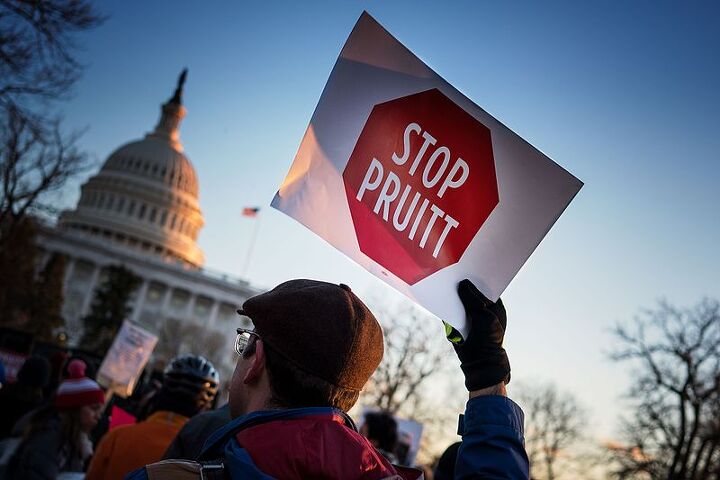
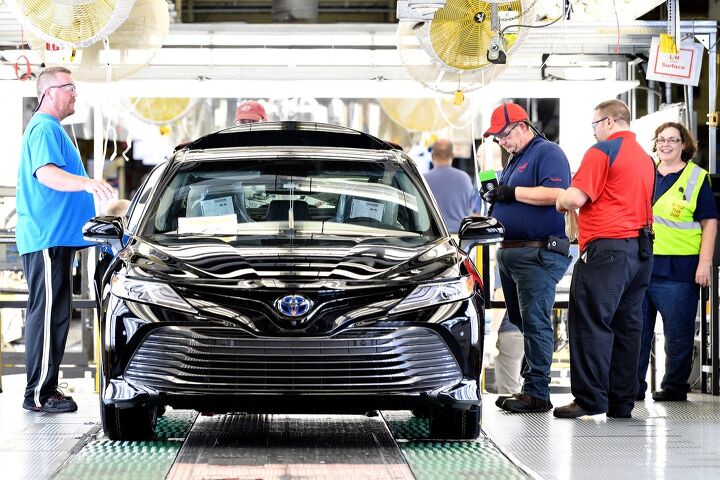


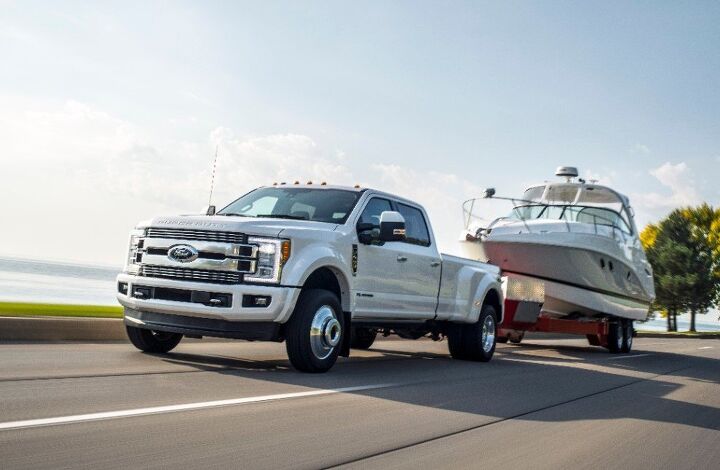


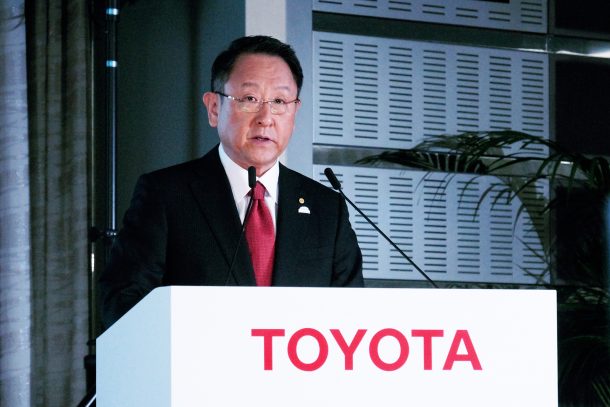
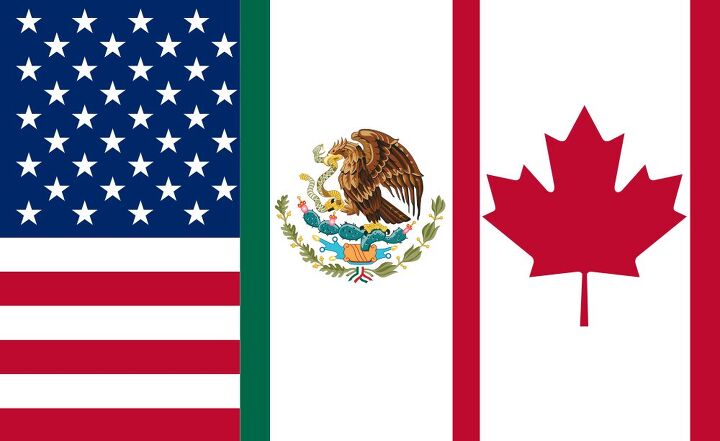
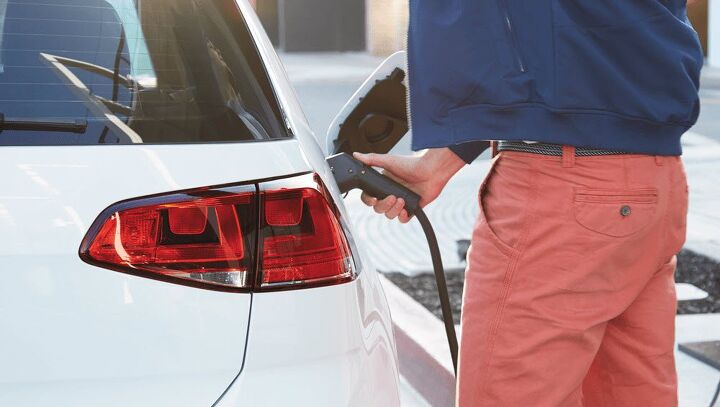












Recent Comments